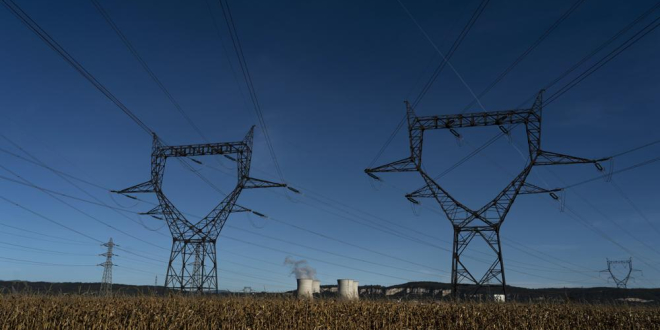Under the watchword “Every gesture counts,” the French government launched an energy-saving drive Thursday to get the country through the winter without natural gas from Russia and closer to the European Union targets of reaching climate neutrality by 2050.
The French push for “energy sobriety,” months in the planning, dovetails with gas- and electricity-saving drives taking root across Europe. The war in Ukraine is forcing the continent to swiftly wean itself off cheap fossil fuels from aggressor Russia and scramble for alternative sources — a dramatic shift driving concerns of possible shortages and crushing price rises for the energy needed to power European homes and industries.
To ward off any gas or electricity shortages in the coming winter, France’s government is aiming for a swift 10% reduction in the country’s energy use with the raft of turn-it-down, switch-it-off energy-saving measures that ministers detailed Thursday.
They included an array of energy-saving tips, efforts to reduce energy consumption in public buildings by limiting heating and other belt-tightening, and a new ”“Every gesture counts” publicity campaign urging people to do their bit.
Shut downs for maintenance of French nuclear power plants and the squeezing off of Russian gas had previously prompted government warnings of possible energy shortages and blackouts in the winter months. But the French government is now less alarmist, having filled stocks of gas, with nuclear reactors scheduled to come back on line and with the hope that consumers will get behind the drive to slash energy usage by 10% by 2024.
“If we all mobilize to reach it, in the worst scenarios we’ll get through the winter,” French President Emmanuel Macron said.
Officials hope that “energy sobriety” will also install lasting and more environmentally friendly good habits that speed France’s longer-term goal of phasing out fossil fuels and slashing its energy use by 40% by 2050, to comply with EU climate neutrality targets.
French towns and cities haven’t waited for the government to act, with a growing number already turning down thermostats in swimming pools, sports halls and other venues, and some also switching off street lights at night.
Among the energy-saving tips promoted Thursday by the government were shorter showers, switching off idled electrical equipment and not heating rooms above 19 degrees Celsius (66 Fahrenheit). Other measures aim for energy-saving in workplaces, sports and other fields.
“It’s a new way of thinking and acting,” said Prime Minister Élisabeth Borne.

